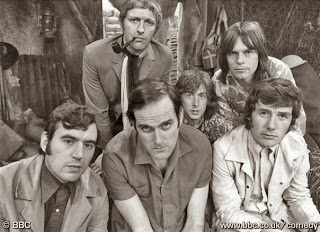Time to get out the old camera and start filming!!!
 |
| Yeah, step back,just a bit. There! |
Maybe you've just finished a course in filmmaking. Maybe you're about to start a course in filmmaking. Maybe you're thinking "I've got this film I want to make, how do I go about making it?"
 |
| Cannes is Over. Long Live Cannes. |
Don't just start shooting. Some folks do that and wind up with tons and tons of footage. I know at least one Sundance filmmaker who started shooting a film about his friends, and spent a year trying to sort through the footage.
 |
| Oldie but goodie. Cannes and QT. |
First ask yourself "What the premise of this film? If I could answer it in one sentence what would it be?" Then ask yourself "What the end of the first act? What happens that propels the audience to follow my character in a new direction?"
 |
| Old foto. Still good. |
Think about your ending. What's the first image I want to show on film, and how does it relate to the last image? This is true for both documentaries and narrative films. Every story has a beginning middle and an end. Every life has the same. So think in terms of why you're telling this story, and then why you're telling this story.
 |
| Great place for Indie Filmmakers |
Ask "how can I make this film stand out above the crowd?" Part of that journey is brining your own pov to the subject matter. What inspires you to tell this story? Is it like others stories that have been told? How can you make it different?
Respect the game. The audience is as smart if not smarter than the filmmaker. So don't talk down to them, don't pander to them, don't show them things they've already seen, and don't insult them by showing them things they don't want to see. It's one thing to have a fantasy world, but another thing to bring it into the marketplace.
 |
| I'm ready for my close up Mr. DeMille |
Then once you've thought these things through - forget about them. Find your actors, or just go to your location. Tell the story. Let the actors give you ideas how to fix your story. You may not agree, but they deserve to be heard. You may learn something you don't know.
When you've shot it, edited it, show it to friends. Get their feedback or opinion. Ask them to be honest. Remember that one point of view won't make or break a story - but if everyone has the same note about your film then it's time to rethink it. Reshoot a scene. Add something else to address the concern. You don't have to make the changes others insist upon - but you do need to understand why it doesn't make sense, or it throws them out of the story.
 |
| High five. Where's George Miller when I need him? |
Think about the marketplace. Some would argue this is the first item to worry about. But not every painter picks up a paintbrush to pay the rent. Sometimes it's important just to see what colors come out of the brush. Likewise, think about how and where you're going to distribute this - or sell this - or not sell it. There's no rule that you have to sell your art.
It used to be that people trying to figure out how to use the internet charged people for use of their site. Then people realized that just having people come to the site created a brand, or brought in people who appreciated the work, and then found a way to pay that artist. The internet is a vast place for filmmakers to put up their art, and depending on their audience, they've got a good chance at finding them. If the audience is "studio executives" that's fine - but most executives are like anyone else in the audience, and are impressed by content, impressed by the amount of people who've come to see the content. So if you have a million views on a particular piece of work - people pay attention to that. Whether it's good or not. But if it's good, then you have a chance at actually making things that sell.
 |
| Sailing into the sunset in your boat from Costco. |
As Jean Cocteau put it, and the DIY Film Fest's motto: "when the cost of filmmaking is as much as a pencil and piece of paper, then we'll find true artists."
 |
| They're waiting for you. Just "do it!" |
Get to work!!!
